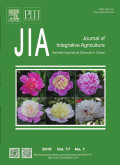Tillage, crop residue, and nutrient management effects on soil organic carbon in rice-based cropping systems: A review - ScienceDirect
摘要:
Soil organic carbon (SOC) sequestration is one of the major agricultural strategies to mitigate greenhouse gas (GHG) emissions, enhance food security, and improve agricultural sustainability. This paper synthesizes the much-needed state-of-knowledge on the effects of tillage, crop residue, and nutrient management practices on SOC sequestration and identifies potential research gap, opportunities, and challenges in studying SOC dynamics in rice (Oryza sativa L.)-based cropping systems in South Asia, mainly in Bangladesh, Bhutan, India, Nepal, Pakistan, and Sri Lanka. Improved management practices such as reduced- and no-tillage management, nitrogen (N) fertilizer and farmyard manure (FYM) application, and crop residue addition can improve SOC accumulation. Positive effects of no-tillage, crop residue addition, N addition through manure or compost application, and integration of organic and chemical fertilizers on SOC accumulation in rice-based cropping systems have been documented from South Asia. However, limited data and enormous discrepancies in SOC measurements across the region exist as the greatest challenge in increasing SOC sequestration and improving agricultural sustainability. More research on SOC as influenced by alternative tillage, crop residue, and nutrient management systems, and development of SOC monitoring system for existing long-term experiments will advance our understanding of the SOC dynamics in rice-based cropping systems and improve agricultural system sustainability in South Asia
展开
DOI:
10.1016/S2095-3119(16)61337-0
被引量:
年份:
2017
通过文献互助平台发起求助,成功后即可免费获取论文全文。
相似文献
参考文献
引证文献
辅助模式
引用
文献可以批量引用啦~
欢迎点我试用!




